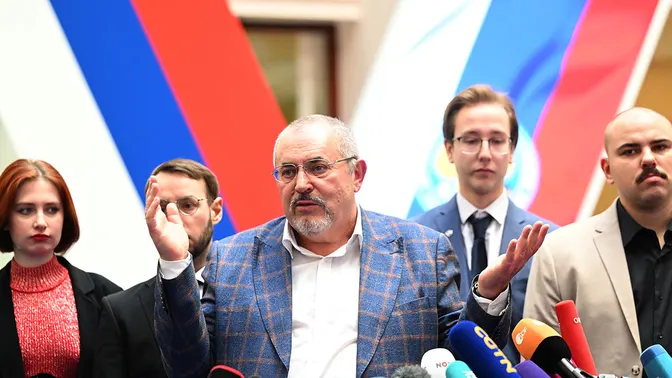In a move that has sparked controversy and further scrutiny of Russia’s electoral process, the Russian Central Election Commission has disqualified Boris Nadezhdin, an outspoken anti-war candidate from the Civic Initiative Party, from the upcoming presidential election against Vladimir Putin. Citing irregularities in the signatures collected to support Nadezhdin’s candidacy, authorities have effectively barred him from challenging Putin, who is anticipated to secure another term amid allegations of controlling the election infrastructure.
Nadezhdin’s campaign, which had gathered significant public support with 158,000 signatures—far exceeding the required 100,000—was a beacon of hope for those advocating for change in Russia’s political landscape. The candidate highlighted the enthusiasm and desire for transformation among Russians, stating, “One thing happened which many could not believe: citizens sensed the possibility of changes in Russia.” His disqualification, however, underscores the challenges faced by opposition figures in a system where the scales are heavily tipped in favour of the incumbent.
The international community views the upcoming March 17 election skeptically, considering it less a democratic process and more a predetermined outcome favouring Putin, who has been a dominant figure in Russian politics since 1999. The approval of candidates from the Liberal Democratic Party and New People Party, while sidelining a prominent anti-war voice, adds to the narrative of an election lacking genuine competition.
The exclusion of Boris Nadezhdin from the presidential race is a setback for his supporters and a stark reminder of the hurdles opposition figures face in Russia. As the country gears up for another election under Putin’s shadow, the disqualification raises poignant questions about the integrity of the electoral system and the future of political dissent in Russia.







